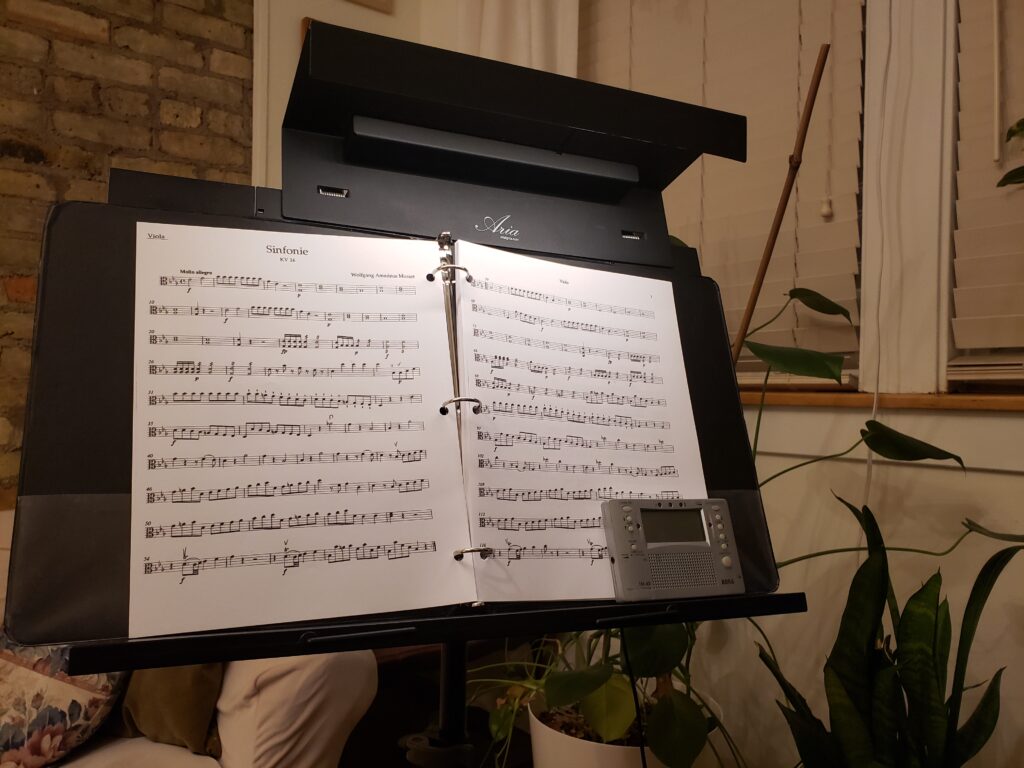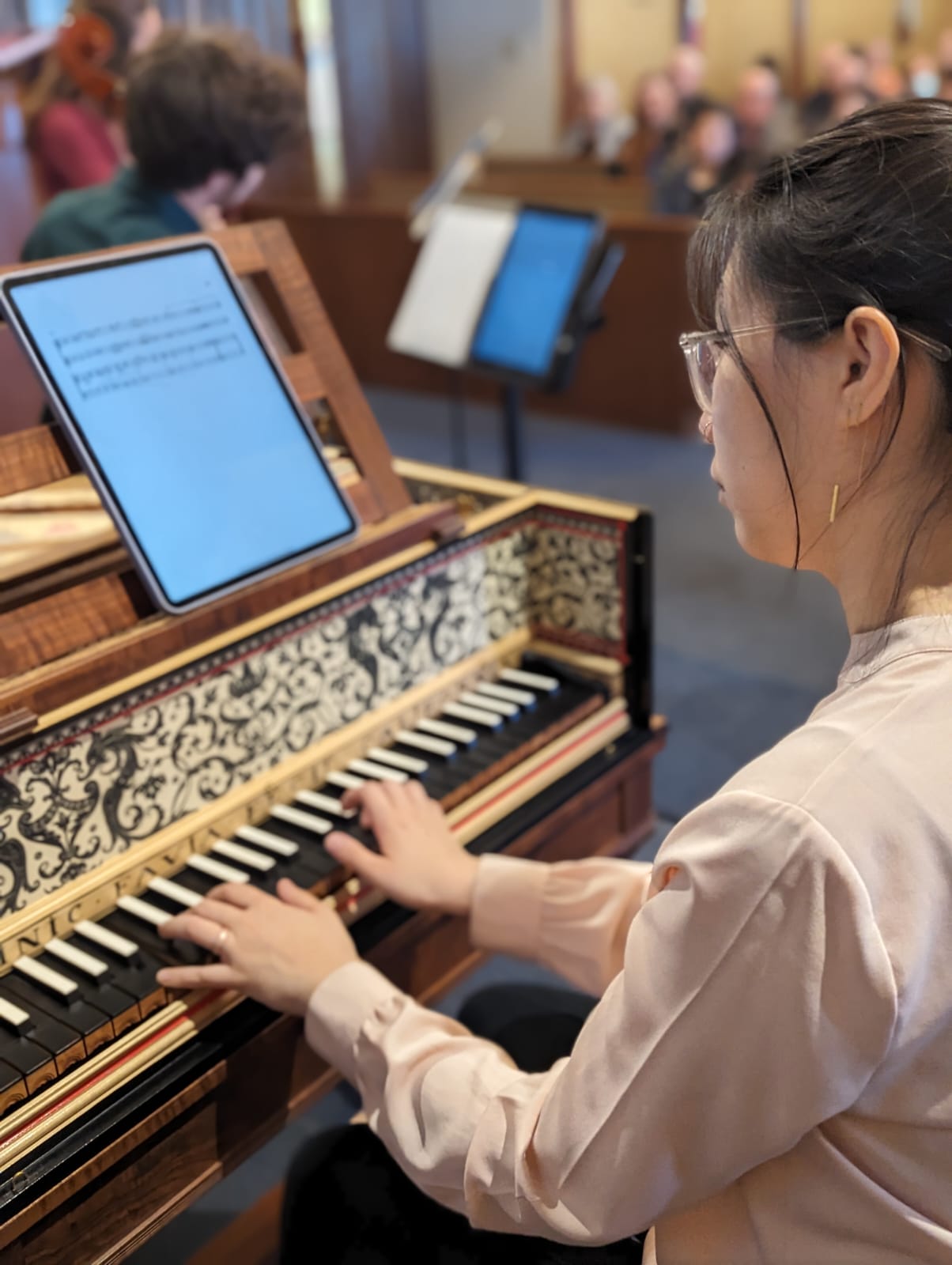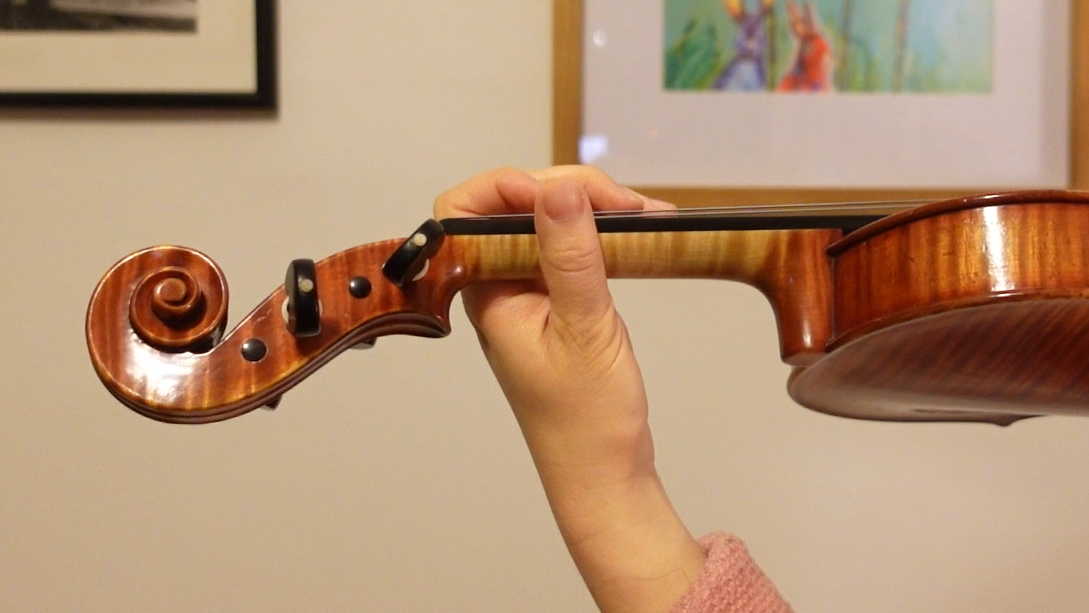Are you motivated to practice violin every day?
I’m going to guess not, and that’s because I’m also not motivated to practice every day. The same goes for most people that I’ve met, whether they’re professional musicians, amateur musicians, or beginner students.
Many people assume that all musicians must love practicing their instrument, but based on my personal experience, that’s a myth.
I remember arriving at one of my college violin lessons and telling my teacher, “I haven’t really practiced this week. It’s so hard to practice because I just don’t feel motivated.”
He gave me a look that made me realize that wasn’t a great excuse.
That was about a decade ago. I’ve since taught a lot of students of my own who arrive at their lessons and make similar statements. I’ve heard it from children whose parents are requiring them to take lessons. But I’ve also heard it from my adult students who are taking lessons because they WANT to.
These students are learning violin because they love playing and they want to improve. Yet, they will show up to lessons weeks in a row without having practiced enough.
We all know that practicing is essential for improving, and we love playing the violin, so why is it so hard to find the motivation, time, or energy to practice sometimes?
I know that some musicians don’t have this issue with practicing. In 2020, when the pandemic had destroyed all in-person performance work for musicians, a colleague told me, “But now we have SO MUCH TIME TO PRACTICE!” He clearly loved to practice and was thrilled that he could do it all day long. I could not relate!
Even though I make a living as a musician, I was never the type of person who looked forward to practicing every day. However, practicing is absolutely necessary. So, I had to figure out a way to practice regularly, even on the days that I don’t feel “motivated.” Here’s what I’ve learned. Maybe it will help some of you, too.
1. You don’t need to feel motivation in order to practice
It’s pretty normal to not feel motivated about something 100% of the time. Like other emotions, motivation will come and go depending on the day or week. Knowing this, I decided that I can still practice on days I’m not motivated. I can practice on days when I don’t feel like practicing. And often, the feeling of motivation kicks in once I’m already practicing. Once I notice that I’ve improved, I tend to feel more motivated. And once I developed a habit of practicing even when I’m not feeling motivated, it became easier. I learned that I can ignore the thoughts about not wanting to practice, and just practice anyway.
2. When you don’t have practice motivation, the hardest part is getting started
Getting the violin out of the case is often the biggest obstacle to practicing. Once I pull up my music and have my violin in my hands, the rest naturally follows. Knowing that the hardest part is just getting past the first few motions, I encourage my students to make the beginning of practicing as easy as possible. Keep your violin case in a place that you can see it. Have a dedicated practice spot where you can keep your music stand, music books, and metronome.
3. A few minutes is better than zero minutes when you’re ‘not motivated’ or too busy
I’ve come to realize that practicing just a little bit is better than not doing it at all. So, on busy days when I really don’t think I have time or energy for a normal practice session, I’ll tell myself that I only have to practice for 10 minutes. Some days, my brain needs to know that I’m not asking too much of it!
One reason for doing a short practice session rather than not doing anything at all is so that I can keep the momentum going from one day to the next. If I let myself off the hook for one day of practicing, I’m more likely to miss the next day as well. However, even if I only get to practice for 10 minutes a day for a week straight (during a super busy week, for example), I’ve still accomplished 70 minutes of practicing over the course of the week.
And remember how getting started is the hardest part? Often, I will get through those ten minutes, and then I feel the momentum to keep going for a longer practicing session.
If you’re looking for something short to practice that will fit within a ten-minute session, I suggest starting with something simple and enjoyable. If you’re a beginner, these short and easy duets would be a great warm-up.
4. Have an accountability buddy
Lately I’ve been working on memorizing some music with the goal of performing it with my ensemble. Each Friday we send each other a short video of ourselves playing the new section of music that we’ve memorized. It really helps to have someone who is waiting for a progress update!
I have also told my students that if it will help them stay on track, they’re welcome to send me a short daily video of themselves practicing. Is there someone in your life who will help keep you accountable in your practicing?
5. Keep a practice log for motivation
I recommend keeping a journal or file where you write down what you worked on in each practice session. Logging your practice can be motivating as you work towards larger goals. It can be inspiring to look back and see what you’ve accomplished.
6. Reduce distractions
The many distractions of today’s world can certainly interfere with your practice motivation. In particular, smartphones and any technology that shows notifications are big deterrents to focused practice sessions. I used to use my phone’s metronome app while I practiced, but inevitably I would start checking my notifications and waste a lot of my valuable practice time.
For focused, productive practicing, turn your phone off, and put it somewhere you can’t see it. Replace your metronome app with a real metronome if you don’t have one already!

What motivates you to practice?
Let me know if any of these ideas are helpful for you, and let me know if you have any practice tips of your own. What’s keeping you from practicing? You can leave a comment below or message me here. If you’re looking for some accountability to help you make progress, I also offer lessons (in-person and online options available).

Kiyoe Matsuura is a violinist and violist based in Chicago, IL. In addition to her active performing and teaching schedule, she enjoys creating online content to help beginner and intermediate violin students around the world. Her experience as a certified yoga instructor allows her to help violin students with pain prevention and posture alignment.
Recent Posts From The Blog
How To Do a 180° Career Change As A Classical Musician
As a musician, I’ve had moments of wondering what life would be like to go through a career change. …
What It’s Like To Fulfill Your Parents’ Musical Dreams
With discipline, talent, and passion for orchestral music, 32-year-old cellist Sonia Mantell has alr…
How To Treat Violin-Related Pain and Injuries With Sotai
For violinists who have struggled with playing-related pain despite trying countless remedies, a Jap…
How To Build A Nationally-Recognized Non-Profit Music Ensemble
Starting a non-profit music ensemble is a dream shared by many musicians, but turning that dream int…
How Friendships and Passion Shape A Meaningful Life In Music
Have you ever reflected on the values that guide your career as a musician? Pianist, harpsichordist,…
How To Overcome Left-hand Pain While Playing Violin
Left-hand and arm pain while playing violin is a common challenge for students. As a violin teacher,…






Greetings Kiyoe! I’m an adult piano student who has lately really been struggling with getting motivated to practice, and in desperation I did a Google search on the topic and it turned up your March 2023 article, “How To Overcome Not Feeling Motivated To Practice”. I wanted to let you know how much I appreciate your having written this! I feel like it has helped to reset my attitude towards practicing and will help me overcome what up until now has felt like a boulder blocking my path to practicing. I’ve read a few things on the internet about motivation, but yours is by far the best. I’m going to print off a copy and keep it in my practice binder, since I’m sure I’ll want to refer to it again! Thank you, Barbara
Hi Barbara, thanks for your kind comment. I’m so glad that this helped you!